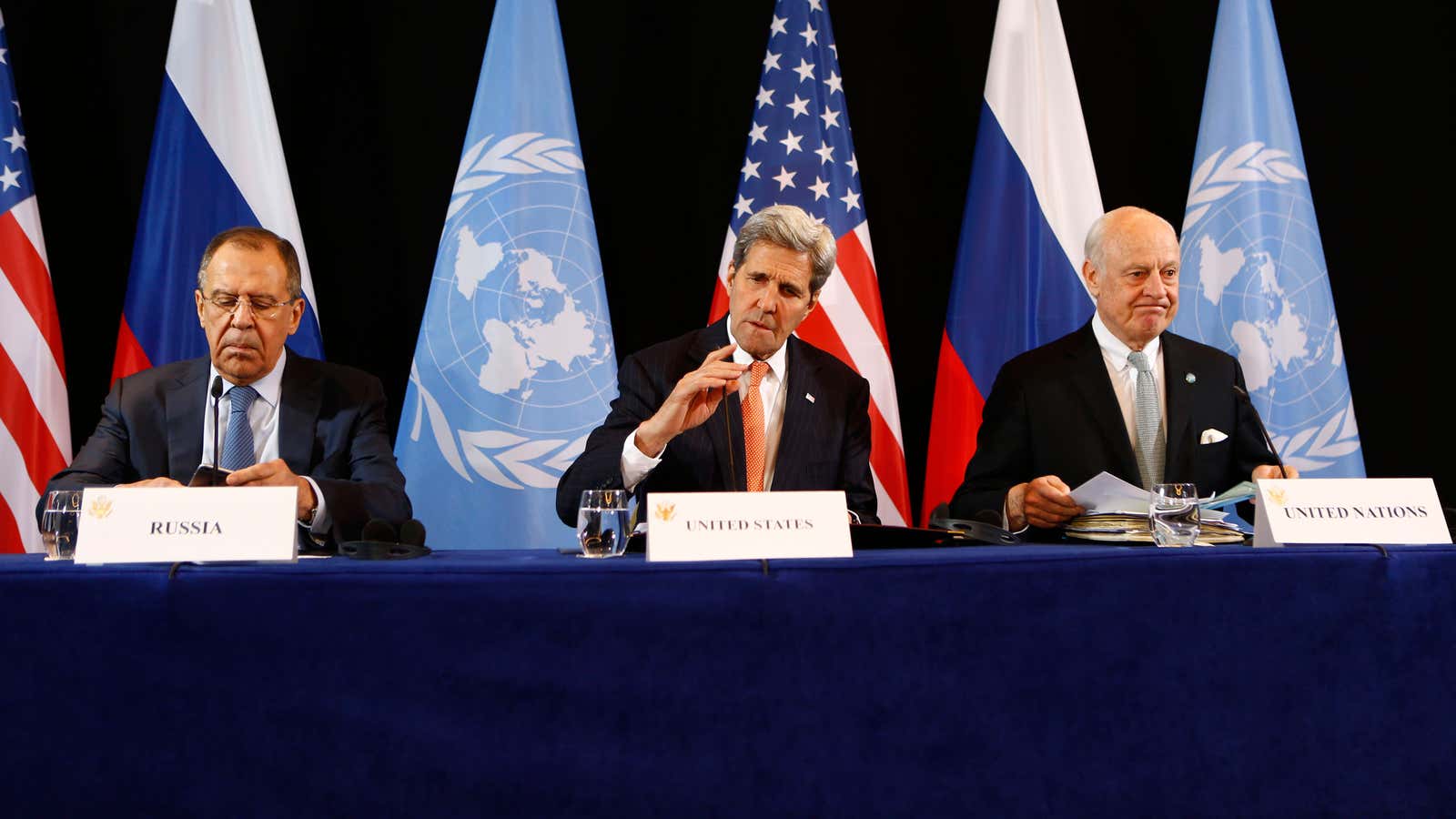Major world powers, including the US and Russia, have agreed to a nationwide “cessation of hostilities” in Syria and to permit the immediate delivery of humanitarian aid, US Secretary of State John Kerry.
Speaking from Munich early Friday (Feb. 12), Kerry stopped short of calling the agreement a ceasefire, but said the aim is to stop the fighting “in one week’s time.” Russia agreed to end some of its airstrikes that have reportedly killed hundreds of civilians. The timing appears to be a compromise between a Russian ceasefire date of March 1 and earlier US demands that the fighting stop “immediately.”
But the agreement does not apply to terrorist organizations, including ISIL and al-Nusra Front, who have not been part of the “International Syria Support Group” of nations. Even the ceasefire’s main negotiators signaled it was tentative.
“Everybody today agreed on the urgency of humanitarian access,” Kerry said. “What we have here are words on paper. What we need to see in the next few days are actions on the ground.”
Russian foreign minister Sergei Lavrov called the agreement a “first step” toward a full ceasefire.
The civil war in Syria has killed hundreds of thousands of people and displaced millions more. According to the nonprofit World Vision, more than 13.5 million people in Syria require humanitarian assistance. The United Nations estimates that six million children are in need of aid. Ceasefire negotiations have been extremely difficult because of the complicated network of allies and enemies fighting in the war.
While Kerry called the plan “ambitious,” both he and Lavrov agreed that the Syrian government and rebels should resume peace talks as soon as possible.
“We have no illusions about how difficult that is,” Kerry said. “People fully understand that compromise will be necessary, that it will be essential to solve very tough issues that are outstanding. But without a political transition, it is not possible to achieve peace.”
